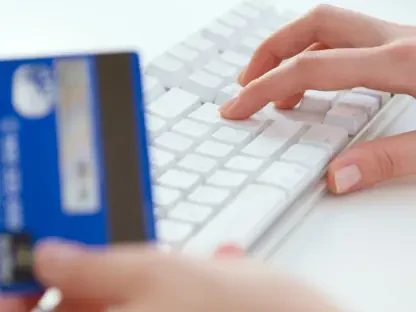The rise of cryptocurrencies has opened up a world of financial possibilities, giving investors and traders a new realm to explore and potentially profit from. However, with this comes the inevitable risk of cyber threats such as hacking, phishing, and scam tactics that aim to compromise your digital assets. In light of these dangers, it’s essential for anyone involved in the crypto world to take proactive measures to secure their investments. Ensuring the safety of your crypto assets is not merely an option; it’s a necessity to protect your wealth from the ever-evolving landscape of cyber threats. Below, we delve into comprehensive strategies and best practices that will help you keep your crypto assets secure.
1. Select Trustworthy Cryptocurrency Wallets and Platforms
The first step in securing your crypto assets is to choose reliable cryptocurrency wallets and exchanges. It’s vital to conduct thorough due diligence before settling on a platform, as the wrong choice could expose you to significant risks. Reliable exchanges and wallets often come with a storied reputation backed by positive reviews from users. They offer several layers of security, such as two-factor authentication (2FA) and cold storage.
When selecting a platform, prioritize those that store the majority of funds in cold wallets, disconnected from the internet, to prevent unauthorized access. Notably, platforms with a transparent security protocol and regulatory compliance demonstrate an added layer of trustworthiness. These platforms not only offer ease of use but also come with robust security measures designed to protect your assets. By aligning with such platforms, the risk of losing funds due to hacking or fraud substantially diminishes.
Moreover, opting for well-known exchanges with a track record of stability and security ensures peace of mind. These exchanges invest in cutting-edge security technology and continuously update their systems to fend off cyber threats. They also provide additional services, such as account recovery and customer support, which can be crucial in emergency situations. Therefore, the reliability of a platform is paramount to ensuring the safety of your assets.
2. Create Strong and Distinct Passwords
Creating strong and unique passwords is an indispensable part of your crypto security measures. The complexity of your passwords plays a significant role in safeguarding your accounts across various cryptocurrency platforms. A secure password should be long, incorporating a mix of upper and lower case letters, numbers, and special characters. This complexity makes it much harder for hackers to crack your password through brute-force attacks or social engineering tactics.
In addition to crafting robust passwords, it’s also highly recommended to use a password manager. Password managers can generate and store complex passwords for all your accounts, reducing the risk of reusing the same password across different platforms. They offer secure storage and make managing multiple passwords easy, ensuring that you won’t have to remember each intricate combination. With password managers, you can also change your passwords regularly without the hassle of remembering new ones, adding an extra layer of security.
Beyond password managers, enabling two-factor authentication (2FA) further fortifies your accounts. 2FA requires a second form of verification, such as a code sent to your mobile device, in addition to your password. This additional step ensures that even if your password is compromised, the attacker would also need access to your secondary device to gain entry. Whether through SMS codes, authenticator apps, or even biometric verification, 2FA adds a hurdle that significantly improves the security of your online accounts.
3. Utilize Hardware Wallets
One of the most effective ways to keep your cryptocurrency assets safe is by using hardware wallets. These physical devices, often resembling USB drives, store your private keys offline, making them inaccessible to hackers. Unlike software wallets, which can be vulnerable to online attacks, hardware wallets provide a secure and isolated environment for your sensitive information. This type of wallet is particularly beneficial for storing significant amounts of cryptocurrency, as it minimizes the risk of theft.
Hardware wallets come with several built-in security features designed to protect your assets. For instance, they typically require you to confirm transactions on the device itself, preventing unauthorized transactions even if your computer is compromised. Many hardware wallets also employ PIN codes and recovery phrases, adding layers of security that keep your funds safe in case the device is lost or stolen. By storing your private keys offline, these wallets eliminate the primary attack vector used by cybercriminals.
Setting up a hardware wallet is generally straightforward, and the initial configuration usually includes setting a secure PIN and generating a recovery phrase. It’s imperative to store this recovery phrase in a safe location, as it’s the only way to recover your funds if the hardware wallet is damaged or lost. Engraving the recovery phrase on a metal plate or storing it in a bank safe are effective ways to ensure its longevity and security. By integrating hardware wallets into your security strategy, you significantly reduce the risk of your crypto assets being compromised by cyber threats.
4. Safeguard Your Private Keys
Your private keys and seed phrases are the ultimate keys to accessing your cryptocurrency assets, making their protection paramount. These pieces of information should never be shared or stored digitally in places where they can be accessed by unauthorized individuals. Instead, consider storing your private keys in highly secure locations, such as bank safes or secure physical media, to prevent them from being compromised.
Using physical methods to store your private keys can greatly enhance their security. For instance, some crypto users engrave their private keys or recovery phrases on metal plates, providing a durable safeguard against physical damage. Metal plates offer protection against fire, water, and other environmental factors that could potentially damage traditional paper backups. This method ensures that your crucial information remains intact and accessible only to you, preserving the safety of your assets.
Additionally, it’s important to use secure locations to store your private keys. Bank safes, for example, provide a high level of security against both theft and natural disasters. Keeping your private keys in such secure environments ensures that they remain out of reach of malicious actors while preserving accessibility for authorized use. In all cases, the primary objective is to maintain the security and confidentiality of your private keys, reducing the risk of their loss or theft.
5. Update Your Software and Antivirus Programs Regularly
The boom of cryptocurrencies has unlocked a myriad of financial opportunities, offering investors and traders a novel domain to explore and potentially benefit from. Yet, with these opportunities comes the unavoidable risk of cyber threats like hacking, phishing, and scams designed to steal your digital assets. Given these dangers, it’s crucial for anyone active in the crypto space to adopt proactive measures to secure their investments. Safeguarding your crypto assets isn’t just an option; it’s a fundamental requirement to protect your wealth against the constantly changing landscape of cyber threats.
To ensure the security of your digital assets, start by using robust, unique passwords and enabling two-factor authentication (2FA) on all your crypto accounts. It’s also wise to store the majority of your holdings in a hardware wallet, which is less susceptible to online attacks compared to software wallets. Be cautious of phishing attempts by verifying the authenticity of emails and websites before providing any information.
Moreover, it’s essential to stay informed about the latest security practices and updates in the crypto world. Joining reputable forums and following trusted sources can help you stay ahead of potential threats. In summary, the rise of cryptocurrencies demands a vigilant approach to security. By adhering to best practices and staying informed, you can better protect your digital wealth from cyber risks.









